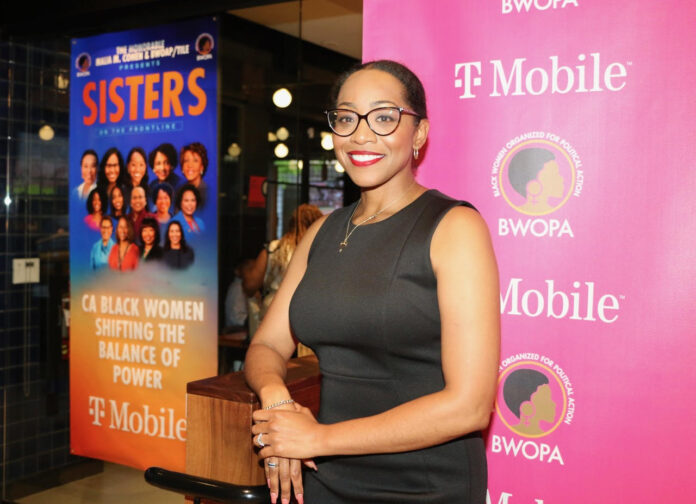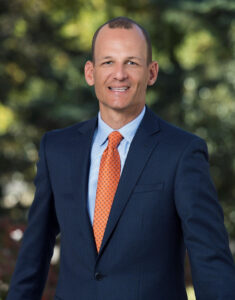
By Tanu Henry, Edward Henderson and Lila Brown, California Black Media
“Sisters on The Frontline:” California Black Women Democrats Host Meet-Up at California Democratic Party Convention in Los Angeles
California State Controller, Malia Cohen hosted members of Black Women Organized for Political Action (BWOPA) during the California Democratic Party state convention in Los Angeles this past weekend.

Themed “Sisters on The Frontline,” the social gathering held at Fixin’s Soul Kitchen in Los Angeles, brought together Black women who are shifting the balance of power across the state such as U.S. Rep. Barbara Lee (D-CA-12); Secretary of State Dr. Shirley Weber; California State Assemblymembers Mia Bonta (D-Oakland) and Tina McKinnor (D-Hawthorne); and Los Angeles Mayor Karen Bass.
Other allies who attended to show their support included Attorney General, Rob Bonta and Assemblymember Chris Holden (D-Pasadena).
During the event, Lee spoke about her candidacy for U.S. Senate and Weber shared some details about the proceedings of the state’s Reparations task force.
Weber said she expects the Legislature will approve the task force’s recommendations.
Bill Aims to “Clean Up Wild, Wild West” of Ballot Initiative Campaigns
On May 21, Assemblymember Isaac Bryan (D-Los Angeles) hosted a virtual rally to discuss Assembly Bill (AB) 421. The bill, which he authored, aims to tackle problems with California’s ballot initiative process.
The goal of the bill is to help voters know who is behind a measure and identify paid signature collection campaigns, Bryan said.
AB 421 would expand oversight of signature collection and referendum campaign funding by the Secretary of State’s Office. It would also require that unpaid volunteers collect at least 10% of a campaign’s signatures.
In California, paid signature collectors, sometimes from other states, are often contracted to interact with the public and canvas for referendums. AB 421 would require that those signature collectors register with the Secretary of State’s office.
“There are 40 million people who are counting on their Legislature and their governor and their voice to be heard in the democratic process,” Bryan said the following day at a briefing announcing the bill.
“You have communities that have been historically boxed out of this process who have found their voice through different statewide initiative processes,” he added.
Assemblymember Kevin McCarty Announces Bid for Mayor of Sacramento

Last Friday, Assemblymember Kevin McCarty (D-Sacramento), a member of the California Legislative Black Caucus (CLBC), announced he is joining the crowded race to succeed Darrell Steinberg as Mayor of Sacramento. Steinberg is not seeking re-election.
McCarty, who previously served as a city councilmember in Sacramento, stated, “I’ll bring my experience as a neighborhood leader, Housing and Redevelopment Commissioner, City Councilmember and State Assemblymember to build partnerships and deliver results for Sacramento.”
Other candidates in the race are: Flojaune Cofer, a local activist and epidemiologist; Maggy Krell, an attorney who is special advisor to Attorney General Rob Bonta; Jeff Harris, a former councilmember; and Steve Hansen, also a former councilmember.
Los Angeles Mayor Karen Bass Signed Her First City Budget with $1.3 Billion Investment to Combat Homelessness
Last Friday, Los Angeles Mayor Karen Bass signed her first budget since taking office in January. During the ceremony, she pledged to make L.A. safer and more equitable for all Angelenos. Bass was joined by City Council President Paul Krekorian, Council President Pro Tempore Curren Price and Councilmember Bob Blumenfield, Chair of the Budget, Finance and Innovation Committee.
According to Bass, the budget will allow the city to expand its existing strategies to fight homelessness while advancing new ones to improve the city’s infrastructure, address climate change, and enhance city services.
“I am so proud that the City Council has affirmed these priorities and is joining me in building a new Los Angeles with the urgency that Angelenos deserve,” Bass said.
The budget includes $1.3 billion investment to confront the homelessness crisis, including $250 million for Inside Safe – the new citywide program to bring Angelenos inside and shut down street encampments.
The budget for Fiscal Year 2023-2024 takes effect July 1, 2023.
In Contra Costa County, Gov. Newsom Outlines State’s Clean Energy Plan
Last Thursday, Gov. Gavin Newsom announced a new state roadmap called, “Building the Electricity Grid of the Future: California’s Clean Energy Transition Plan.”
According to Newsom’s office, the blueprint details how California will achieve its goal of 100% clean electricity by 2045, while keeping costs affordable and maximizing energy supply through this transition.
Speaking at Moxion Power, a Richmond-based mobile energy storage company, Newsom detailed a plan that includes hundreds of new solar, wind, battery storage, and other clean energy projects across California. He also highlighted the role of technology in creating this modern electricity complex that would allow users to supply power to the grid they have stored in their zero emission car batteries and other appliances.
“California has shown we have a vision, and that vision is achievable,” said Newsom. “This update highlights how we have hit our early targets,
some even ahead of schedule, but we are in a race against climate change. We must build more, faster, to ensure California has the clean, reliable and affordable electricity it needs to power our future.”
A week earlier, Governor Newsom announced a new executive order and legislative package to streamline permitting and other regulations to ensure the state can build more clean energy projects faster.
Transitional Kindergarten in California Is Expanding
Last Wednesday, State Superintendent Tony Thurmond and the California Department of

Education announced Transitional Kindergarten (TK) programs are expanding in California.
Now, Thurmond says, TK will be free to all four-year-old children, regardless of family income, over the next few years.
Children born between September 2018, and April 2019 are eligible to register now in TK for the coming 2023–24 school year.
The expansion is part of Gov. Gavin Newsom’s $2.7 billion plan to enroll 400,000 4-year-olds in an additional year of public education. It is expected to be the largest universal preschool program in the country. Benefits of the program will include higher achievement in math and reading throughout elementary school, increased likelihood of graduating from high school and increased likelihood of earning a college degree.
Public Health Experts Want Students to Consider Telehealth as Viable Option
May is Mental Health Awareness Month.
As high school seniors across the country graduate and prepare for college, awareness of their mental health is becoming a priority for public health leaders and advocates.
To support students – particularly those from disadvantaged backgrounds, including large numbers of Blacks and other minorities — experts are promoting virtual care as viable option with numerous benefits to address the problem they are now referring to as a crisis on college campuses. Telehealth services can help break down stigma related to treatment and serve as a lifeline. It is also especially important because it increases access to more diverse care providers, they say.
In 2019, 25% of California students reported that they had received mental health care services within that school year for mental and psychological issues, according to the California Budget and Policy Center.
“While the numbers are overwhelming, it is critical to applaud America’s youth – and their trusted support systems – for taking the important first step of recognizing their need for professional therapeutic support,” said Bob Booth, MD, Chief Care Officer for TimelyCare, California’s leading provider for telehealth for college students.
“We can expect a tidal wave of students entering college with unprecedented needs for support,” he added.




